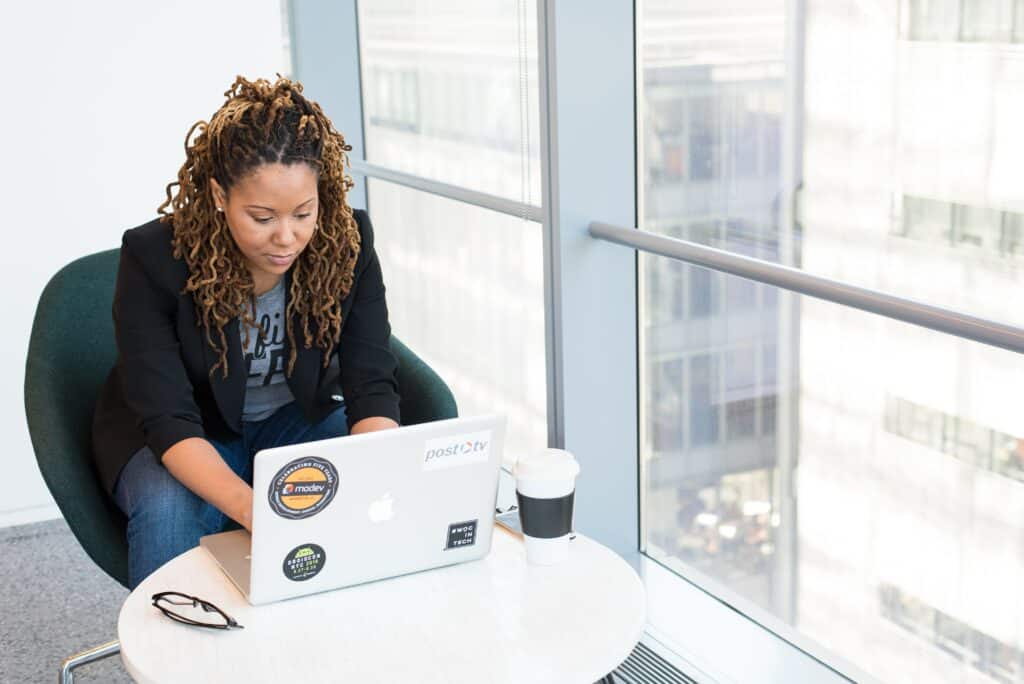Crowdfunding is a financing tool that engages community members who are both investors and customers. It is a great alternative financing solution for minority and women entrepreneurs who historically have not been able to obtain loans or investment at the same rate as their White, male counterparts. Crowdfunding is an option for entrepreneurs seeking seed money to start a new business, funds to support business expansion or to help their business recover from the pandemic.
Crowdfunding enables a large number of individuals to invest small amounts of funds to support entrepreneurs. Crowdfunding projects range from COVID-19 relief, advanced orders of products, fundraising for nonprofits, online classes and more. Amid the COVID-19 crisis, project funding success rate rose to over 50% compared to the previous year on Kickstarter, a crowdfunding platform.
Research from the National Women’s Business Council shows that female entrepreneurs on Kickstarter were more successful than their male counterparts, despite being underrepresented, with women comprising about 35% of all the Kickstarter campaigns in 2016.
Three out of the four most common types of crowdfunding models allow entrepreneurs to keep equity in their small businesses. Equity crowdfunding requires a percentage of ownership in exchange for the investment.
The following are the most common crowdfunding models being used today:
- Donation Crowdfunding
- Reward Crowdfunding
- Debt Crowdfunding
- Equity Crowdfunding
Donation Crowdfunding
Donation crowdfunding is when individual donors support a business through a cash donation. Individuals who donate typically do not expect anything in return, although it is encouraged to send business updates or Thank You emails to donors. When you start a campaign on the donation crowdfunding site IFundWomen, you can be considered for a COVID-19 relief microgrant. GoFundMe.Org, another donation-based crowdfunding site, will match $500 to qualifying small businesses who have been impacted by the coronavirus pandemic.
Reward Crowdfunding
Reward Crowdfunding platforms like Kickstarter or Indiegogo collect contributions with an expectation that a perk will be shared in return.
Indiegogo is dedicated to crowdfunding creative projects in technology and design. Rewards or perks that will be provided must be made clear prior to the start of the campaign. Consulting, branded swag, postcards, product discounts and e-books are some examples of perks that entrepreneurs can provide for donors. IFundWomen allows contributors to choose between different donation tiers that correspond to different perks, making IFundWomen both a reward and a donation crowdfunding platform.
Debt Crowdfunding
A debt or business loan based crowdfunding platform allows entrepreneurs to borrow funds from their own community and network. HoneyComb Credit and KIVA US are two examples of crowdfunding platforms that use this business loan model. KIVA is a nonprofit lending firm that provides 0% interest loans to borrowers. In a 2018 report from the National Women’s Business Council, 50% of the borrowers on KIVA were women and 72% of female borrowers were in food services, direct sales (cosmetics, crafts, clothing) and agriculture.
The Local Initiative Support Corporation (LISC) works with community-based support organizations to make investments in businesses, jobs, education, health, safety and housing. LISC’S KIVA partnership will provide one-on-one support and enable entrepreneurs to be eligible for a loan match. Sixty-one percent of the funded campaigns through this partnership have been women.
Equity Crowdfunding
Equity Crowdfunding is similar to angel investing or venture capital in that it allows investors to provide funding in return for a percentage of ownership in the company. Platforms like WeFunder, SeedInvest and
StartEngine allow entrepreneurs to choose how much equity they want to offer to investors.
To assist start-ups and small businesses in D.C., businesses that use equity crowdfunding can qualify for a tax exemption through this DC-only securities offering.
Tips for All Crowdfunding
Crowdfunding enables entrepreneurs to raise capital in an untraditional setting. However, there are a few things you need to be aware of before launching a campaign:
- Crowdfunding is a good way to obtain startup capital or raise funds, but it is not the best option for long term financing.
- Experts say that engaging with a business assistance provider makes it more likely that entrepreneurs will achieve a successful campaign. Some crowdfunding platforms offer training to prepare you for your campaign and you can also seek counseling and assistance at the DC Women’s Business Center.
- Because crowdfunding is small amounts of capital raised through a large number of people, crowdfunding campaigns should be complemented with strong online engagement and social media presence.
- It is important to research and understand the terms and rates for the crowdfunding platform that is best for you.
For a list of crowdfunding platforms with special initiatives for small businesses impacted by COVID-19, check here.
The Kickstarter’s Creative Projects in the Time of COVID-19 can be found here.
The DC Women’s Business Center is funded in part by the Small Business Administration and supported by the National Community Reinvestment Coalition. The DC WBC is a small business development organization focused on empowering women entrepreneurs in the DMV region.
**Stay tuned for an upcoming Crowdfunding Toolkit developed by the Washington DC Economic Partnership, Deputy Mayor for Planning and Economic Development, Department of Small and Local Business Development and the DC Women’s Business Center to help you strategically navigate crowdfunding in DC.**
Monti Taylor is a resource coordinator for the DCWBC.
Photo by Christina @ wocintechchat.com on Unsplash



